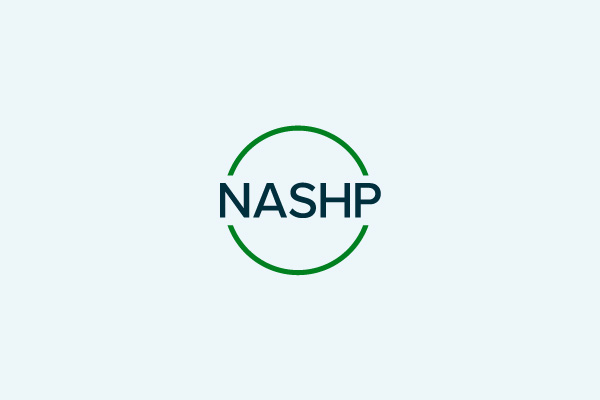This information was collected through a combination of state surveys and NASHP staff research. It offers a snapshot of how the state is defining, training, certifying, and paying for the CHW workforce — as well as how the state is developing cross-agency and state-to-local strategies to improve community health in partnership with CHWs.
This is a dynamic policy space, and states are continuing to develop new approaches. We will continue to make periodic updates to this page. Learn more about state CHW policies across the U.S.
State CHW Definition
The Oklahoma State Department of Health (OSDH) website defines CHWs as “lay members of the community who work in association with the local health care system in both urban and rural environments. CHWs usually share ethnicity, language, socioeconomic status, and life experiences with the community members they serve. CHWs offer interpretation and translation services, provide culturally appropriate health education and information, help people get the care they need, give informal counseling and guidance on health behaviors, advocate for individual and community health needs, and provide some direct services such as first aid and blood pressure screening.”
Certification and Training
The University of Oklahoma and Oklahoma State University (OSU) are working to develop CHW training and evaluation programs. The state currently uses the C3 Project to define roles, skills, and competencies.
OSU offers foundational training for CHWs for all 11 C3 CHW core skills, developed in collaboration between OSU, University of Oklahoma Health Science Center, and Langston University. The Oklahoma Public Health Training Center also develops, implements, and advocates for CHW training in the state.
The Oklahoma Public Health Training Center (OPHTC) Community Health Worker Program will support CHWs through scholarships to provide continuing education for conferences and other educational opportunities. Stipends will be provided upon completion of the educational opportunity and submission of deliverables.
Medicaid Reimbursement
Oklahoma does not reimburse for CHWs through its Medicaid program. However, under the state’s Medicaid transformation and as part of a quality improvement effort, Oklahoma Healthcare Authority is required to set up partnerships with select contracted entities, which can include CHWs, that can help reduce health disparities.
Other Funding or Financing Mechanisms
Through funding from the CDC Community Health Workers for COVID Response and Resilient Communities (CCR) initiative, OSDH has established the Oklahoma Community Health Workforce Initiative, along with the Public Health Association’s CHW Caucus. Work is ongoing to create an Oklahoma CHW community of practice and CHW association. The state has also leveraged federal funding used to address immunizations and disparities.
Key Partnerships
Key partners include the Oklahoma CHW Coalition, which aims to support statewide sustainable CHW infrastructure in Oklahoma, Oklahoma Public Health Administration, Tribal governments, county health departments, statewide community health centers, Public Health Institute of Oklahoma, Mercy Hospital, Rural Health Projects, Oklahoma Public Health Training Center, Southern Plains Tribal Health Board, and Oklahoma Public Health Association.
State CHW Legislation
Information is unavailable.
State Resources
State Overviews
ACO – Accountable care organization
AHEC – Area Health Education Centers
APHA – American Public Health Association
APM – Alternative payment model
CBO – Community-based organization
CDC – Centers for Disease Control and Prevention
CDC CCR Funding – Community Health Workers for COVID Response and Resilient Communities Funding
CHR – Community health representative
CHW – Community health worker
CPT Codes – Current Procedural Terminology Codes
C3 Project – CHW Core Competency Project
FFS – Fee for services
HCSPCS Codes – Healthcare Common Procedure Coding System Codes
HRSA – Health Resources & Services Administration
MCO – Managed care organization
NACHW – National Association of Community Health Workers
SDOH – Social determinants of health
VBP – Value-based payment
State CHW Definition: This category indicates where states have a formal definition of a CHW. In some cases, where there is not a definition in statute, this category may draw information from provider manuals and state websites or reports.
Certification and Training: This category includes information about how CHWs are trained in the state, which entities provide training, whether or not the state runs or recognizes a CHW certification program, and information about the entities that administer existing certification programs.
Medicaid Reimbursement: This category includes information about state Medicaid strategies that provide enrollees access to CHW services. Entries indicate whether state Medicaid programs currently reimburse for CHW services or incorporate CHWs into alternative payment models under the authority of a state plan amendment (SPA), or where states have earmarked funds to support CHW services under the authority of an 1115 demonstration waiver. It also indicates where CHW services might be supported through managed care approaches (e.g., where MCOs are paying for CHW services using administrative dollars or where states are using managed care contracts to incentivize or require MCOs to cover CHW services).
Other Funding or Financing Mechanisms: This category includes information about other state funding or financing approaches that cover CHW services or CHW positions. It includes information about federal grant dollars for which the state is the grantee.
Key Partnerships: This category offers information about key partners outside state government, including state CHW associations and CHW training entities, and highlights formal cross-agency partnerships within the state that support alignment of funding and resources for the CHW workforce.
State CHW Legislation: This category highlights any state legislation relevant to the CHW workforce. This might include statutory language directing agencies to develop a Medicaid reimbursement approach, laws that established state CHW certification, or other relevant statutes.
State Resources: This category offers links to any key reports or resources that states elected to highlight as critical to CHW policy and partnership.



